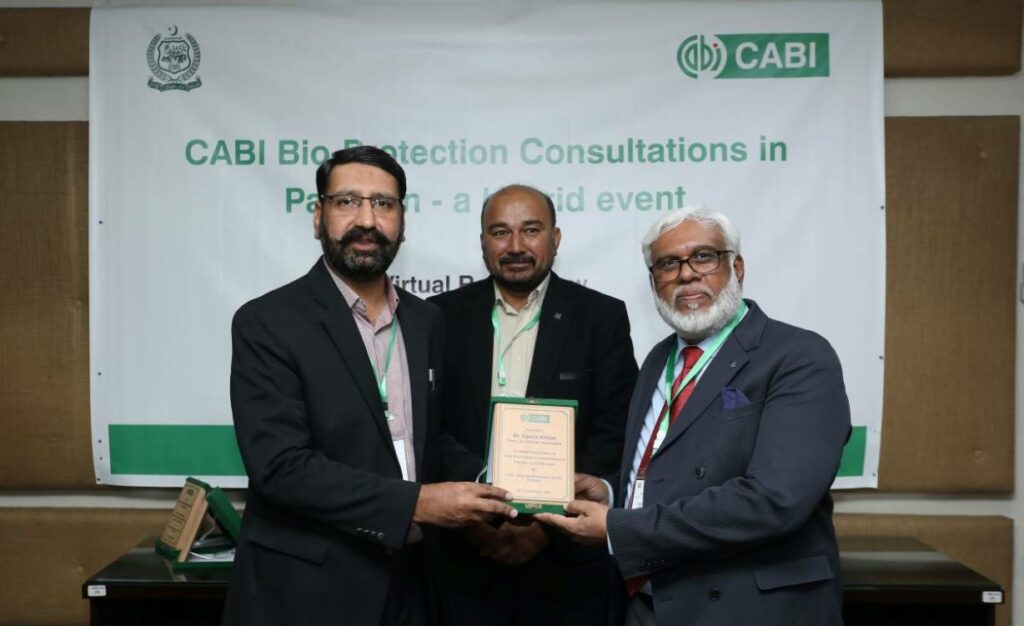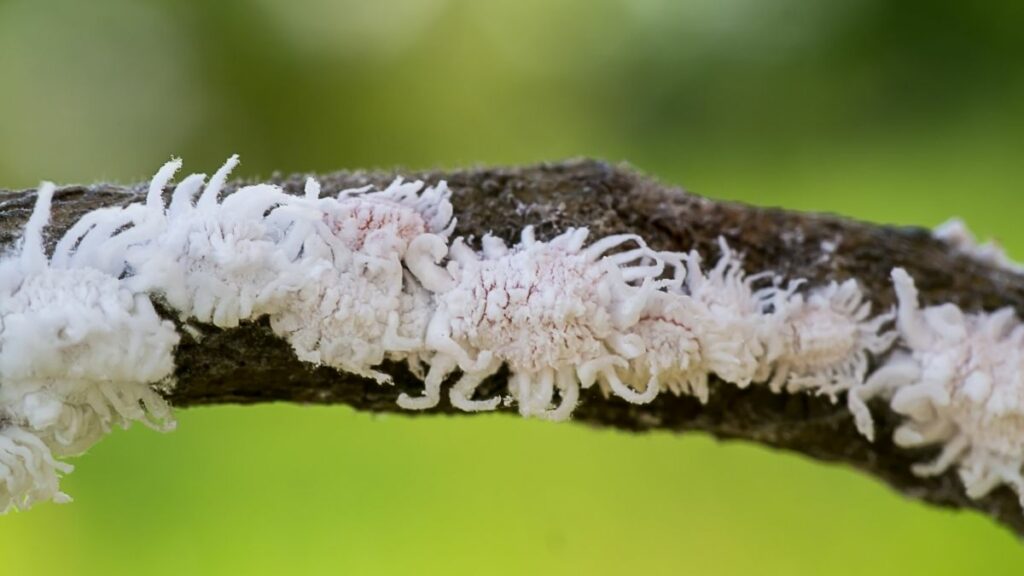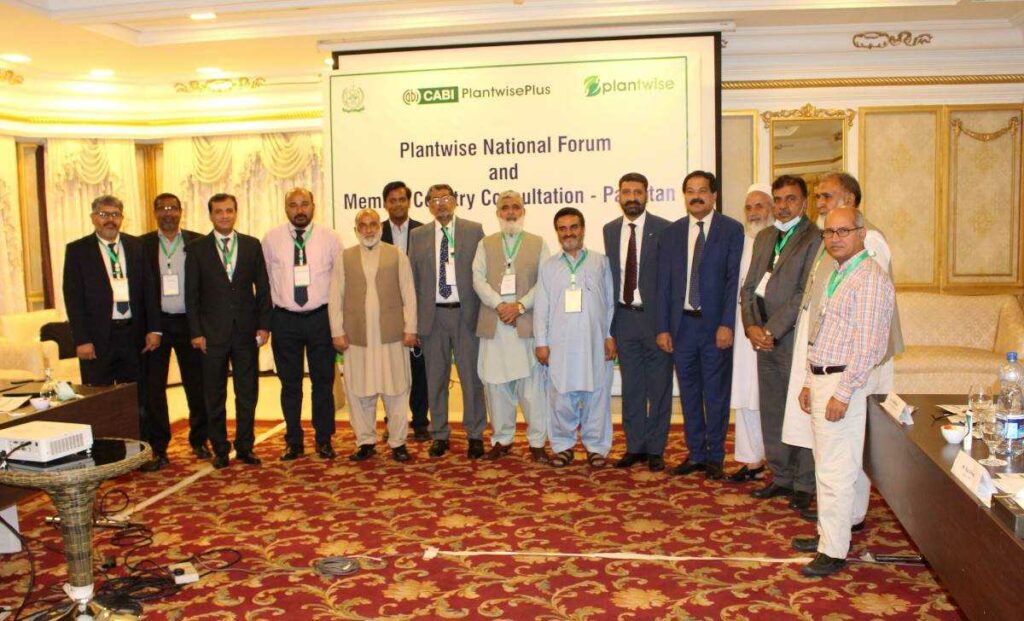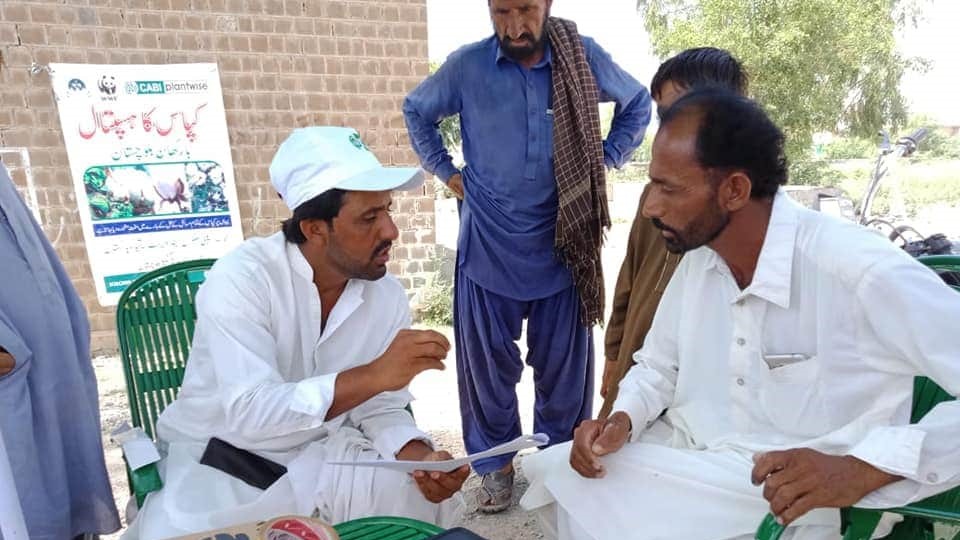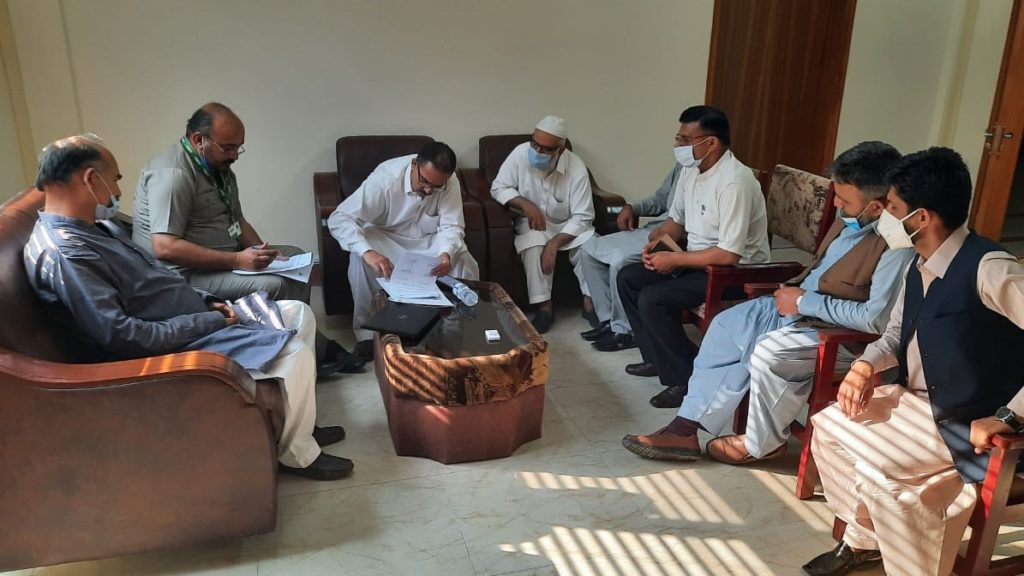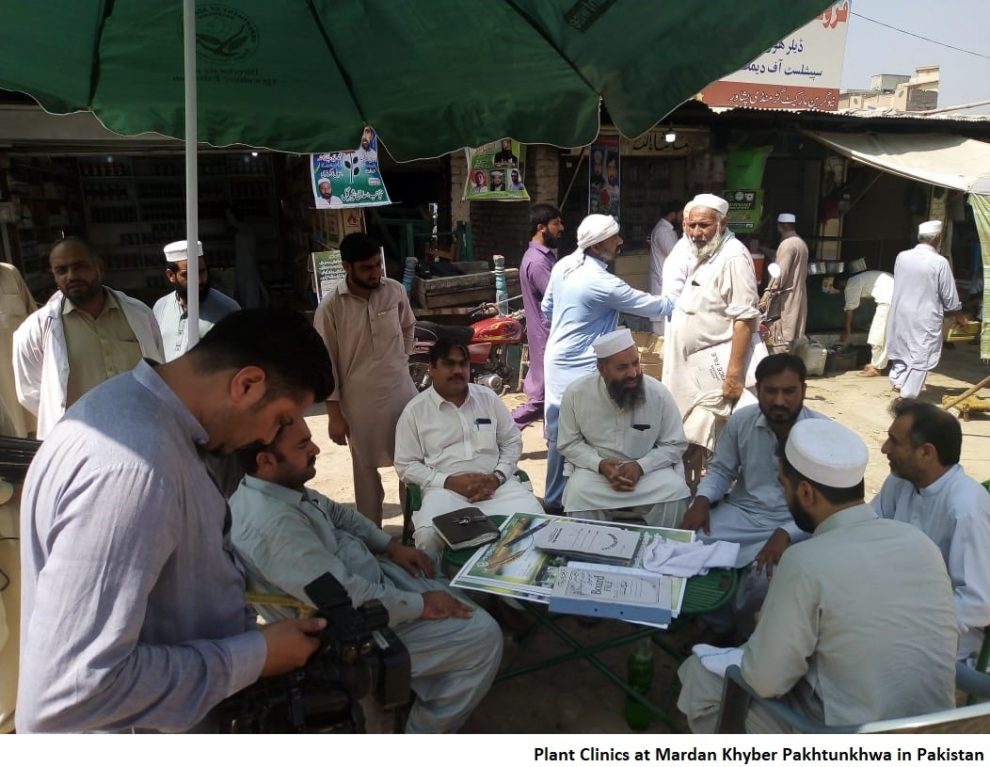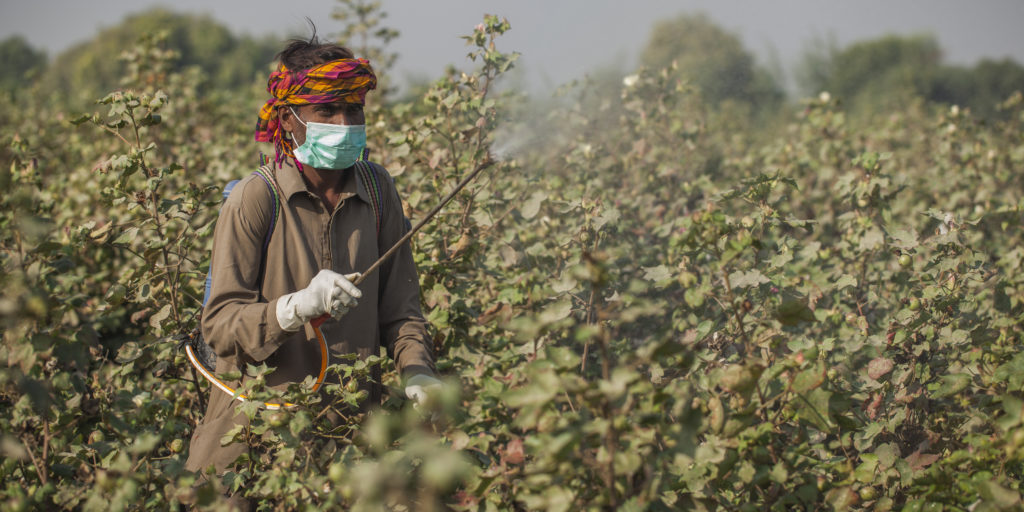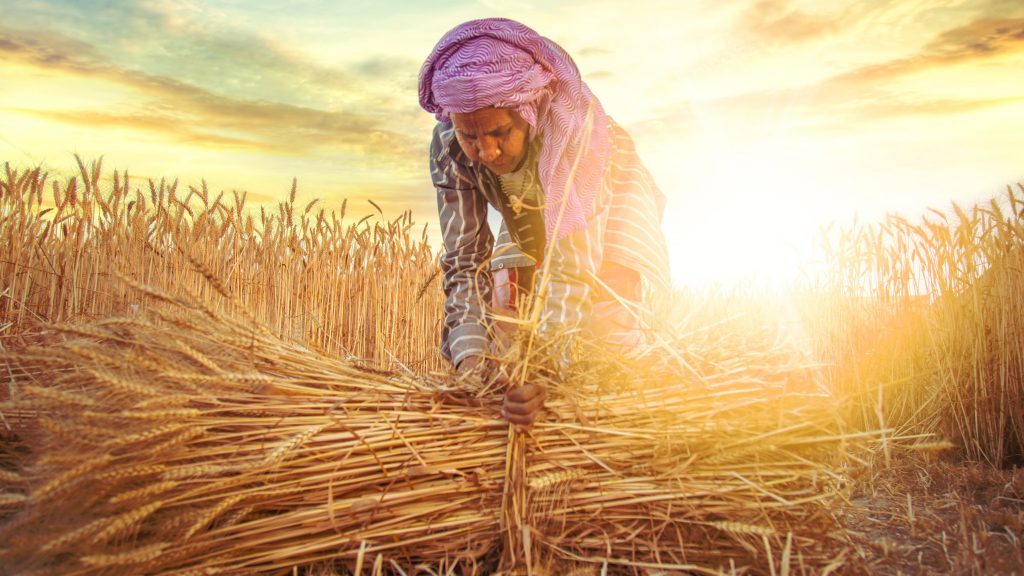Bio-protection roadshow promotes low-risk plant protection products in Pakistan
Agriculture continues to face new and complex challenges. Not only do these affect agricultural production, but also basic and applied agricultural research and education. One key area of concern is the increasing threat from plant pests and diseases, made worse by climate change and environmental degradation. Farmers often turn to chemical pesticides to protect their…
Plantwise National Data Centre established in Pakistan
The plant health information collected through Plantwise plant clinics is a valuable resource. The Department of Plant Protection has set up a new National Data Centre in Karachi to collate clinic data. Plant health partners, stakeholders and other knowledge delivery systems will be able to use this information to make evidence-based decisions that strengthen plant…
Pest Risk Analysis workshop: spotting Pakistan’s potential invaders
Invasive species can cause enormous damage, affecting biodiversity, the environment, and people in invaded areas. They disproportionately affect communities in poor rural areas; people who depend on natural resources and healthy ecosystems to make a living. It is widely accepted that prevention is better than cure, however, how do you work out which species pose…
Asian Farmers Consult Vibrant E-Plant Clinic Network In Pandemic Times
This article was originally published on aesa – Agricultural Extension in South Asia E-Plant clinics are meeting places where local agricultural advisory officers, known as plant doctors, help farmers struggling with plant pests and diseases. During the COVID-19 pandemic, plant clinics continued to provide advisory services to farmers by going online. Malvika Chaudhary shares her…
Registration of red list chemicals halted in Pakistan thanks to Plantwise
Pakistan’s Department of Plant Protection (DPP) promotes the transition to sustainable crop protection systems. It promotes an integrated approach for crop protection policies and practices within the framework of Sustainable Food and Agriculture. Through a series of meetings with officials of DPP, CABI’s Plantwise team has urged the department to enforce the regulations to minimize…
Female farmers and extension workers should take the lead in reducing gender inequality in agriculture
A CABI-led study which compares male and female perceptions of access to and use of agricultural advisory services to help improve yields says women should take a lead role in helping to reduce inequalities which hinder their contribution to farming. Julien Lamontagne-Godwin, lead author of a new paper, published open access in the Journal of Agricultural Education…
Meeting the needs of women farmers in Pakistan
Globally, women represent 43% of the agricultural labour force but they have less access than men to credit, education, land ownership, high quality inputs, and rural advisory services. Agriculture can be a powerful pathway out of poverty but without fair access to these things, women aren’t always in a position to fully benefit.
- « Previous
- 1
- 2
- 3
- 4
- Next »

